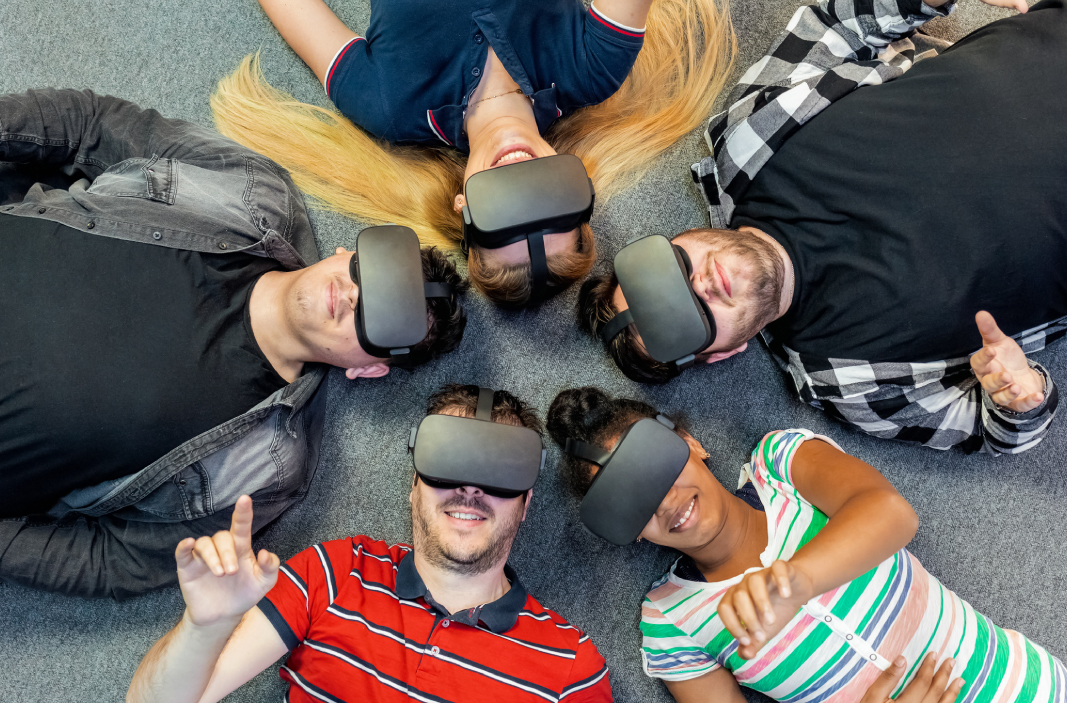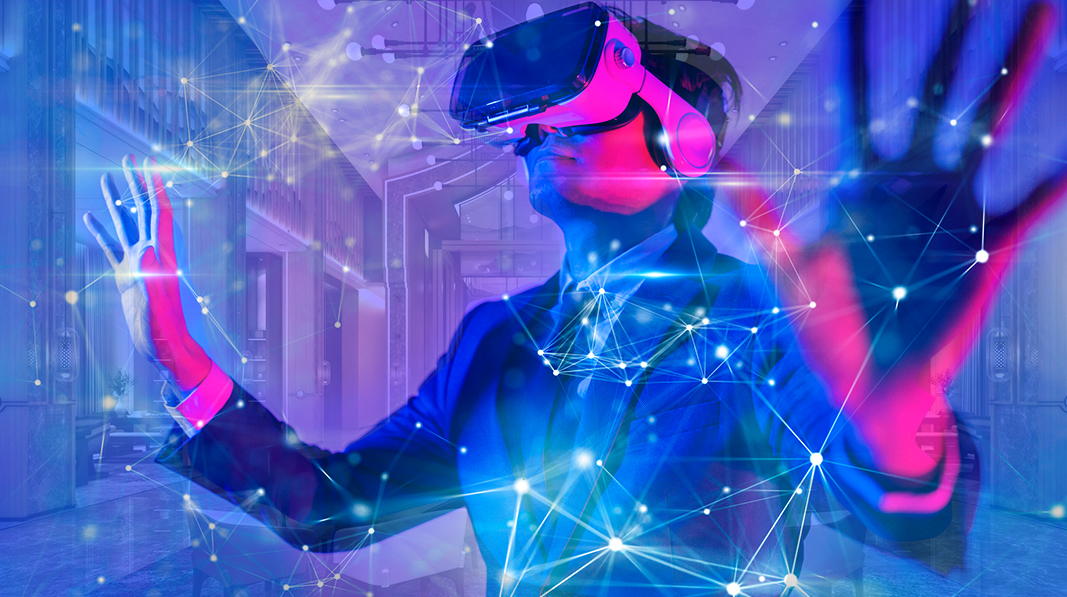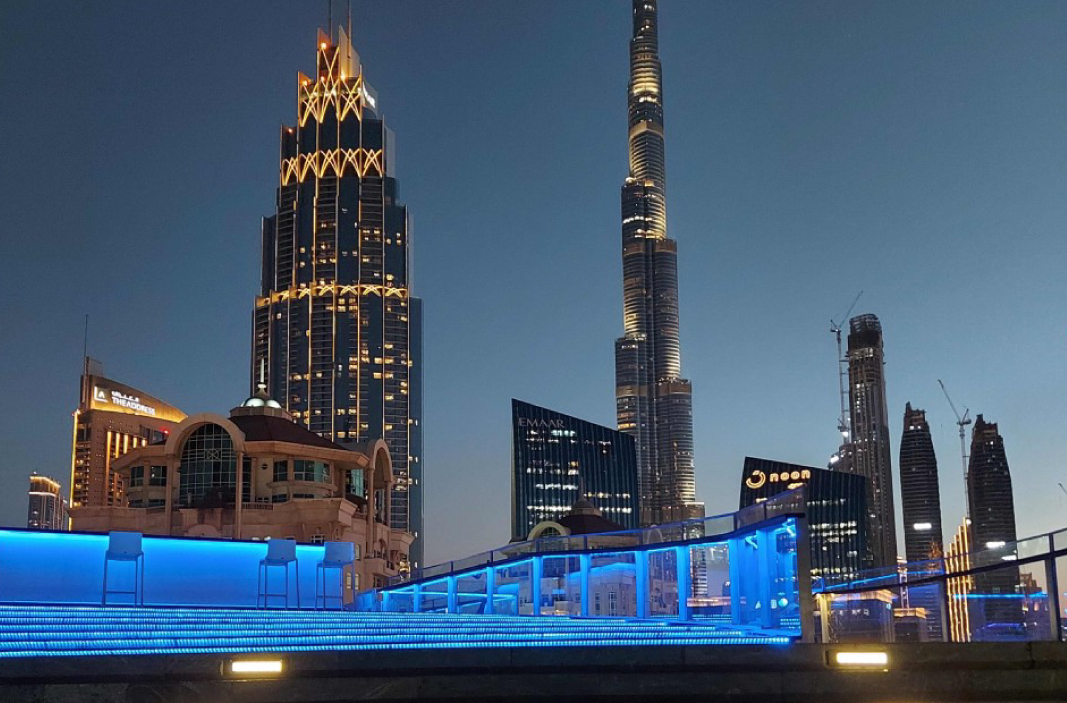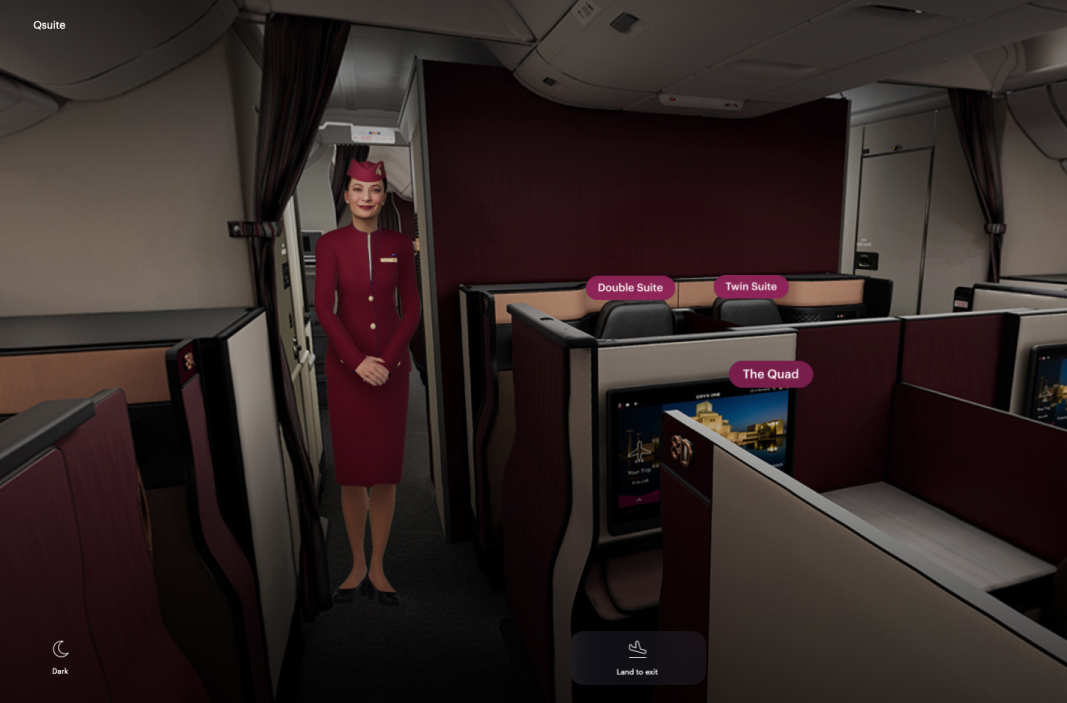After it made headlines last year that Meta (formerly Facebook), along with huge companies like Microsoft and Apple, were working to fuse the physical and digital realms to create a network of 3D virtual worlds – the Metaverse entered the modern vernacular.
There’s much speculation about what the Metaverse has in store for key industries like travel and tourism, retail, automotive, real estate, finance, and essentially any other sector you can think of. As the companies involved work towards making this virtual reality, well, a reality – the digital world is bracing itself for a new age of the internet. As this vast ecosystem evolves, it’s guaranteed to shape the way businesses and consumers interact in a monumental way.
The rise of blockchain, NFTs, and other digital assets are driving this shift towards a virtual reality space that facilitates all kinds of transactions and services to provide immersive consumer experiences.
Travel and tourism is one of the key industries predicted to embrace the Metaverse. Although the industry is already taking advantage of digital innovations, the Metaverse will take it to a whole new level. Inside this virtual world, a consolidated digital environment will reshape e-commerce as we know it, as well as online services, experiences, and social media.
In this article, we’re taking a look at how the Metaverse is set to impact the tourism sector with a particular focus on the Middle East. But first things first, if you’ve heard of the Metaverse but don’t really know what it all means – let’s clear that up.
What is the Metaverse?
In layman’s terms, the Metaverse is an umbrella term describing a virtual reality world that users can navigate freely. Inside the Metaverse, you’ll be able to play, work, shop, interact, travel, and basically do exactly what you can in reality.

First coined in a 1992 novel called Snow Crash by Neal Stephenson, the term made headlines in 2021 when Mark Zukerburg announced that Facebook was rebranding as Meta, with the goal of becoming a Metaverse platform. Initially met with speculation and nervous mockery, other tech giants quickly followed suit. And so, the Metaverse became a bonafide “thing”.
Okay, it’s a virtual reality world, but what does that mean and how does it work?
The Metaverse is a complete ecosystem of integrated virtual environments that can be accessed by numerous users simultaneously. Everyone who enters the Metaverse will do so by wearing a VR headset – and we guarantee there’ll be fashion brands jumping on those too!
The idea is that you can do anything and everything you do in real life inside the Metaverse. You can go shopping, go to work, socialize, play virtual reality games, attend concerts, travel and more. But it’s only in the experimental stages for now, so it’ll likely be a while before you can shift your entire life to a virtual realm.
There are countless pros and cons to the Metaverse, but whether you like or detest the idea, this technology isn’t going anywhere. One of the main reasons people are pro-Metaverse is that it’s guaranteed to drive a bustling new digital economy on every level. Particularly after the pandemic and its effects on the global economy, the Metaverse is a light at the end of the tunnel for people who have lost faith in the traditional way of things.
Moreover, it’s likely to lead to an internet revolution, much like when web 2.0 was driven by user-generated content, social media, and scalability.
If you want to understand the Metaverse in more depth, check out this video Meta shared about the concept:
How can the Metaverse impact the travel and tourism sector?
We know it’s a lot to take in. So let’s narrow our focus to how the Metaverse is going to affect one industry in particular (and one that’s constantly at the forefront of our collective mind after years of lockdowns): travel & tourism.

First, let us ask you this: What do you think about when you imagine travel and tourism within the Metaverse?
Upon first consideration, you might think it means slapping on a headset and jetting off to the Bahamas without actually leaving your couch. But this isn’t the goal. Although it’s definitely a possibility.
Contrastingly, industry leaders view the Metaverse as a tool that’ll complement real life travel experiences, rather than replace them entirely.
For example, brands operating in the industry such as hotel chains, travel agencies, experiential brands can leverage the Metaverse to showcase their products and services in a novel way. The Metaverse would simulate reality, so people could wander through hotels or attractions to get an accurate idea of what they’re like in real life. Of course, all this with the hope that they’d actually buy into these experiences because nothing beats the real thing, right?
Additionally, it could facilitate virtual travel experiences where people located in different cities around the world could meet up and visit attractions, exhibits, restaurants, bars, and more as if they were together.
Metaverse as the ultimate “try before you buy” experience
With consumers becoming pickier over the products and services they buy, it’s no wonder that simulating experiences in reality is guaranteed to be a hit. With the Metaverse, travelers can try out these things before they spend their hard earned cash to ensure they’ll be satisfied with the real thing.
For travel and tourism companies, virtual simulations will play a role in building trust with their audience to encourage purchasing decisions. It also allows them to assess and reduce risk. After all, who hasn’t booked a hotel room online only to find it smaller or more grotty than pictured?
Moreover, travelers who are transported to a destination through an immersive virtual experience are more likely to feel an emotional response towards a company’s offering, which can lead to bookings and purchases. These “try before you buy” experiences are guaranteed to have a significant impact on consumers and influence their purchasing decisions.
Who will this form of marketing target?
This form of marketing is likely to target younger generations who are more familiar with the technology involved. According to GlobalData’s Q1 2021 Consumer Survey, 43% of Gen Z and 41% of millennials are significantly influenced by how digitally advanced a product or service is. This means they’re more likely than older generations to react positively to what the Metaverse is proposing.
All of this isn’t surprising considering that these generations are digital natives who have been around modern technologies like smartphones and the Internet since they were born. By targeting these younger generations, the Metaverse could cement itself as the future of travel and tourism marketing.
How the tourism sector in the Middle East is embracing the potential of the Metaverse
Marketing these kinds of virtual simulated experiences is definitely going to catch on in the Middle East and, frankly, it already is. According to the World Travel & Tourism Council (WTTC), the Travel & Tourism sector in the Middle East could reach US$246 billion in 2022, which is just 8.9% lower than pre-pandemic levels.
The Middle East is already at the forefront of digital transformation. Governments are driving initiatives to accelerate the digital economy, and the Metaverse is going to play an important role in that moving forward.
Dubai is one middle eastern city at the forefront of the shift towards immersive reality experiences in tourism. Dubai is set to create a virtual city in the Metaverse which will include simulated environments that combine elements of augmented reality, virtual reality, cryptocurrencies, social media, and other technologies. Built on a map of the real-world city of Dubai, its virtual counterpart will allow people to meet and share ideas without being physically present.
In addition to this ambitious plan, countless companies around Dubai are harnessing virtual reality to reflect the fact that the way in which people travel and socialize has changed over the past few years. By offering virtual experiences, businesses can continue attracting their local audience as well as people located elsewhere in the world who might not be able to travel. One example of this is the upcoming MetaTerrace in Dubai, which will feature a VR room where customers can dine in different worlds using a headset.

Other experiences like the VR Park at Dubai Mall and Dreamscape at the Mall of Emirates offer more gamified VR experiences, where people can journey into Dubai’s future or battle against aliens.
As people experienced physical restrictions preventing them from traveling, industry leaders quickly came up with alternatives that facilitated travel in unpredictable times. For instance, free VR experiences like Baalbek Reborn allowed people to explore a digital replica of the Roman Heliopolis in Lebanon without having to leave their living rooms.
Big businesses are also catching on the potential of the Metaverse as they seek to stay ahead of the curve in the wake of the pandemic. Qatar Airways recently launched Qverse, a virtual simulation of the check in area at Hamad International Airport and the airlines different cabins, providing an interactive digital experience for their customers.

Emirates, another Middle Eastern airline, is planning to launch NFTs and virtual experiences in the Metaverse. The company’s Chairman and Chief Executive HH Sheikh Ahmed bin Saeed Al Maktoum commented:
“Dubai and the UAE are blazing the way in the digital economy, having a clear vision supported by practical policies and regulatory frameworks in areas such as virtual assets, artificial intelligence, and data protection.
“Emirates has always embraced advanced technologies to improve our business processes, enhance our customer offering, and enrich our employees’ skills and experiences. We are excited about the opportunities in the digital space of the future and are committing a significant investment in financial and resourcing terms, to develop products and services using advanced technologies that will deliver on revenue, brand experience, and business efficiencies.”
What does the future hold?
Although companies are beginning to embrace the Metaverse and its potential, it’s going to take some time before it fully takes off. What’s more, even if the concept does take off it’s unclear how people will react, particularly as tourists look for authentic experiences after the pandemic. That being said, predictions suggest that the Metaverse has the power to change travel and tourism forever.
Virtual reality will make certain experiences more accessible to those who are physically isolated from events or locations while providing users with unique customized experiences that improve the travel experience. By offering immersive brand experiences, companies can increase their visibility and offer memorable experiences while remaining competitive in the shift towards a digital economy.
It’s important to remember that the Metaverse isn’t going to replace travel and tourism completely. If used well, this technology can help to augment reality by delivering immersive experiences to help people make deeper connections while making the world’s culture and history more accessible.
Curious about other trends shaping business in the Middle East? Download the YourTarget eBook on Digital Marketing Trends and Forecast 2022 with a Special Focus on the Middle East.

